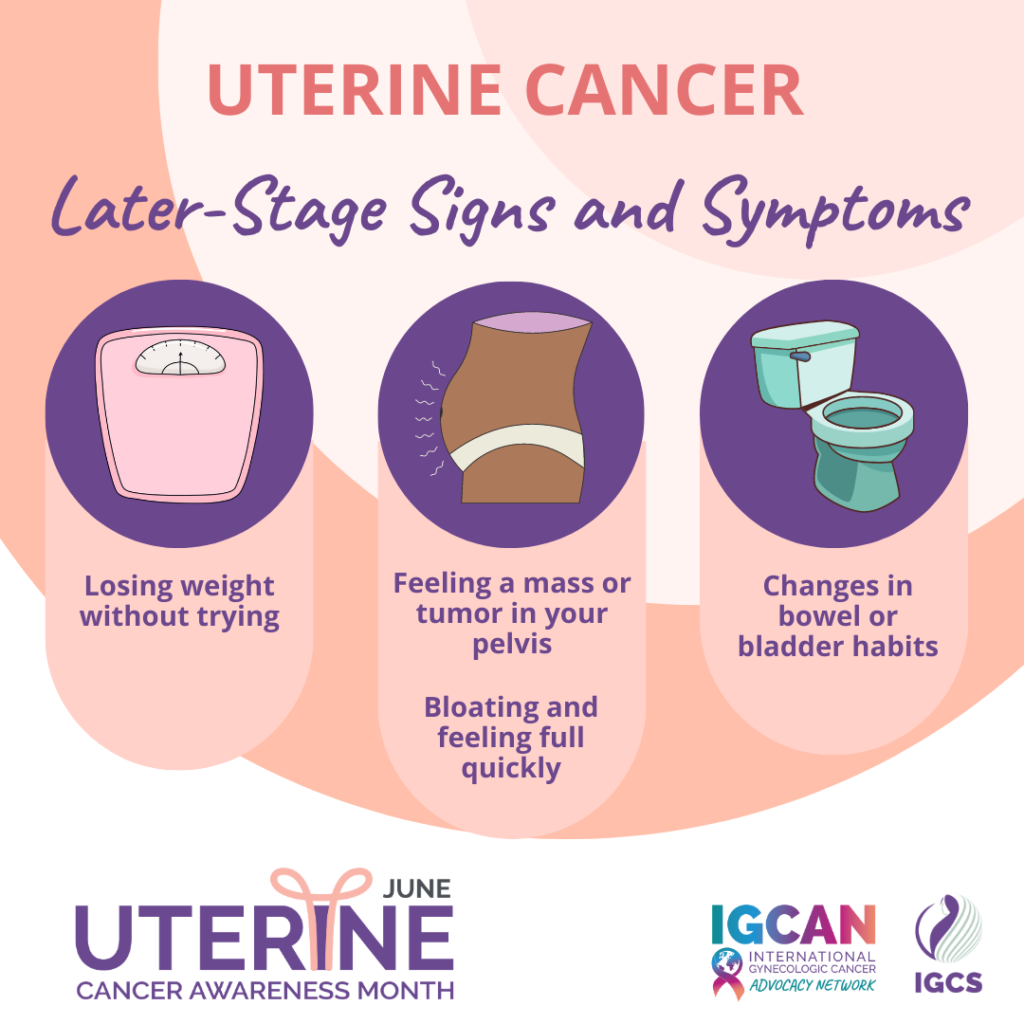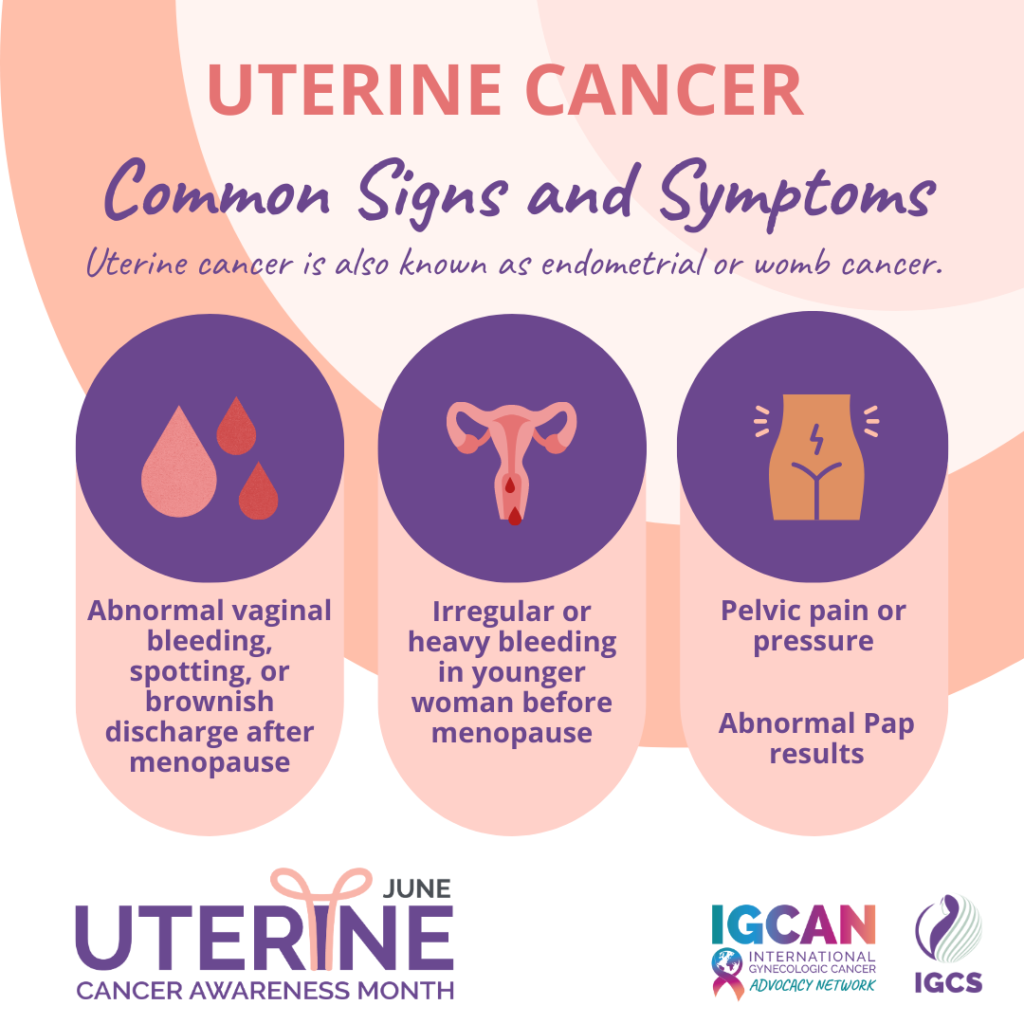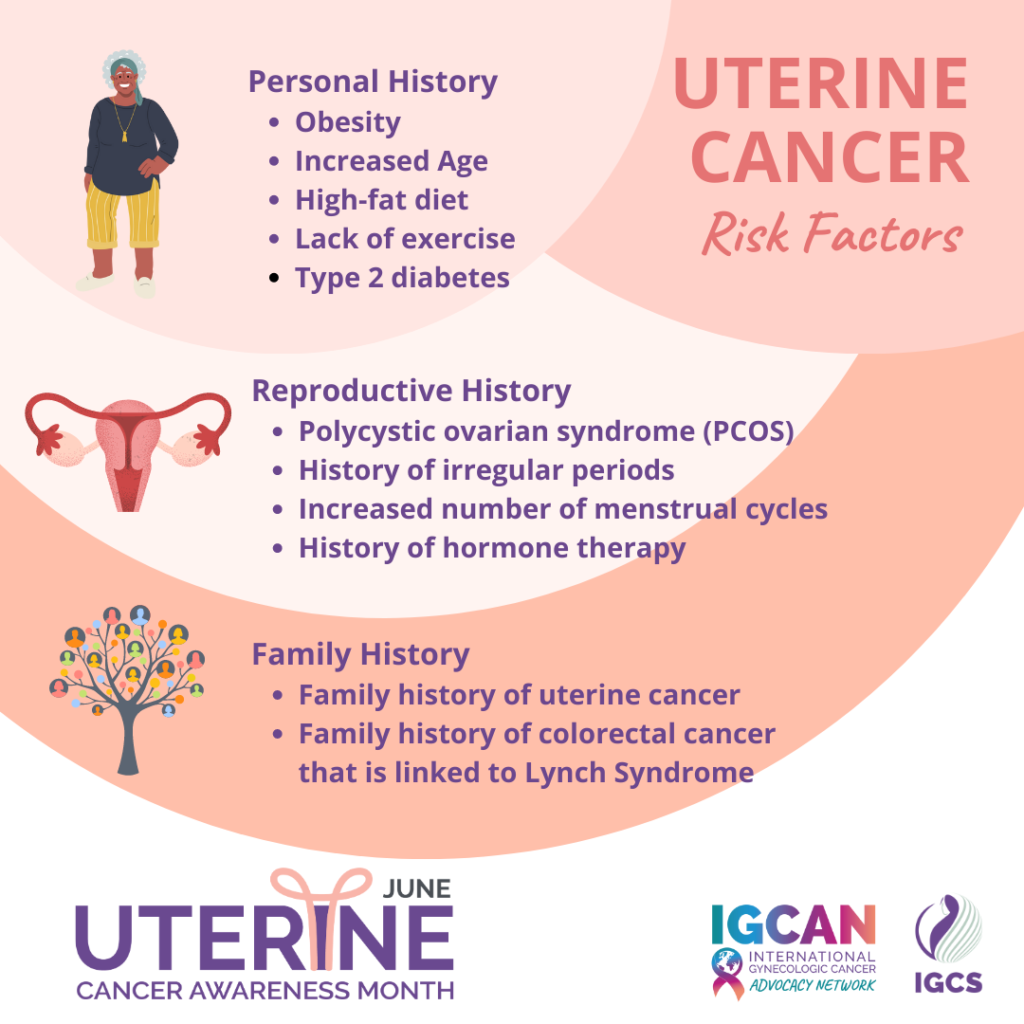Uterine Cancer Awareness Is Now! No matter what age we are, it is important to get any bleeding or periods pattern changes, checked.
Uterine Cancer Age
At what age does uterine cancer most frequently occur?
In Uterine Cancer: Fast Facts the International Gynecological Cancer Society [IGCS] note:
- “Uterine cancer most frequently occurs in women over the age of 45, though it can affect younger women”.
Uterine Cancer
What is uterine cancer?
Depending on the Source the definition of uterine cancer may vary. In Uterine Cancer: Types of Uterine Cancer the IGCS’s definition is:
There are two primary types of uterine cancer:
- Endometrial cancer, which is the most common form of uterine cancer. Endometrial cancer begins in the inner lining of the womb, known as the endometrium
- Uterine sarcoma forms in the muscles and supporting tissues of the uterus. It is rare in comparison to other uterine cancers”.
Uterine Cancer Risk Factors
What are uterine cancer risk factors?
In Uterine Cancer Awareness the IGCS explain:
Menopause
Is there an association between menopause and uterine cancer?
In Uterine Cancer: Uterine Cancer Basics – Types the [United States] Centers for Disease Control and Prevention note:
 “All women are at risk for uterine cancer as long as they have a uterus, and the risk increases with age. Most uterine cancers are found in women who are going through or who have gone through menopause—the time of life when your menstrual periods stop”.
“All women are at risk for uterine cancer as long as they have a uterus, and the risk increases with age. Most uterine cancers are found in women who are going through or who have gone through menopause—the time of life when your menstrual periods stop”.In Womb (Uterus) Cancer: Causes – Who Is More Likely To Get Womb Cancer the (United Kingdom) NHS elaborate on:
You cannot get womb cancer if you’ve had surgery to remove your womb (hysterectomy)”.
Postmenopausal Bleeding
Is postmenopausal bleeding or bleeding after menopause, normal?
No, no, no. In Postmenopausal Bleeding the (United Kingdom) NHS elaborate on:
You have postmenopausal bleeding, even if:
- It’s only happened once
- There’s only a small amount of blood, spotting, or pink or brown discharge
- You do not have any other symptoms
- You’re not sure if it’s blood”.
Who is a GP?
Depending on the Source and/or Depending on the Country, a GP may be a qualified and registered general practitioner, a medical practitioner, a medical doctor or a doctor.
Health Topics A-Z
Where may I find Health Topics A-Z related to Uterine Cancer Awareness Is Now!?
In Health Topics A-Z you may find:
Links
Where may I find Links related to Uterine Cancer Awareness Is Now!?
Your Country may have Links similar to:
Links
This Links List to third party websites is neither comprehensive nor exhaustive. Inclusion on this Links List does not imply endorsement or recommendation. Non-inclusion on this Links List does not imply non-endorsement or non-recommendation. Third party websites are not under the control of Meno Martha International Menopause Directory. Third party websites may contain explicit medical images and/or sexual references. Please read Meno Martha International Menopause Directory’s Links Policy before proceeding to a Link. Please contact Webmaster if you experience a problem with a Link.
- Basics
- Endometrial Cancer
- Foundation for Women’s Cancer [United States]
- Gynecologic Anatomy
- Gynecologic Cancer Awareness
- Gynecologic Cancers
- Gynecologic Cancers
- Info for the Transgender, Non-Binary and Intersex Communities
- International Gynecologic Cancer Advocacy Network
- International Gynecologic Society
- Types
- Uterine Cancer
- Uterine Cancer
- Uterine Cancer Awareness
- Uterine/Endometrial Cancer/GTD
- Video Series-2023: Changes In Sexual Health After Cancer
- Video Series-2023: Premature and Early Menopause
- Video Series-2024: Preparing for Your Menopause Health Care Visit
- Videos and Podcasts: Interviews and Podcasts – Interviews: How Do I Deal With the Menopause After A Diagnosis of Gynaecological Cancer
- You Need To Know [+ Video: Bleeding After the Menopause – An Important Message You Need To Know]
- Womb (Uterus) Cancer
- Womb Cancer




